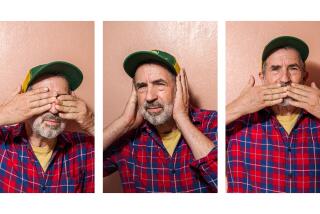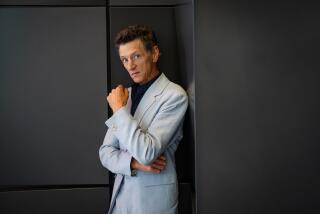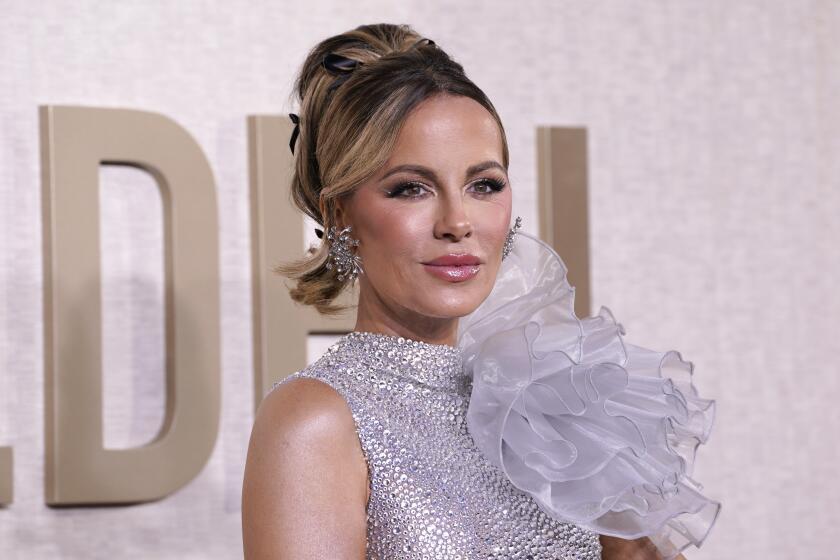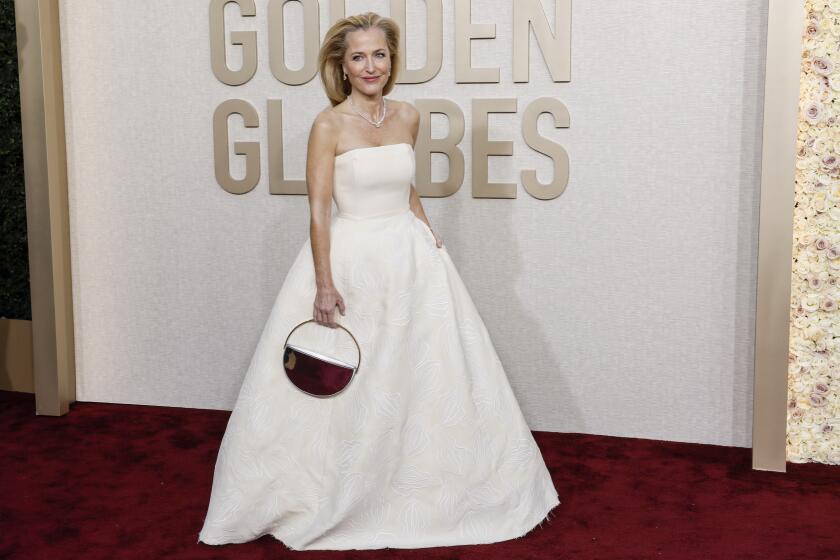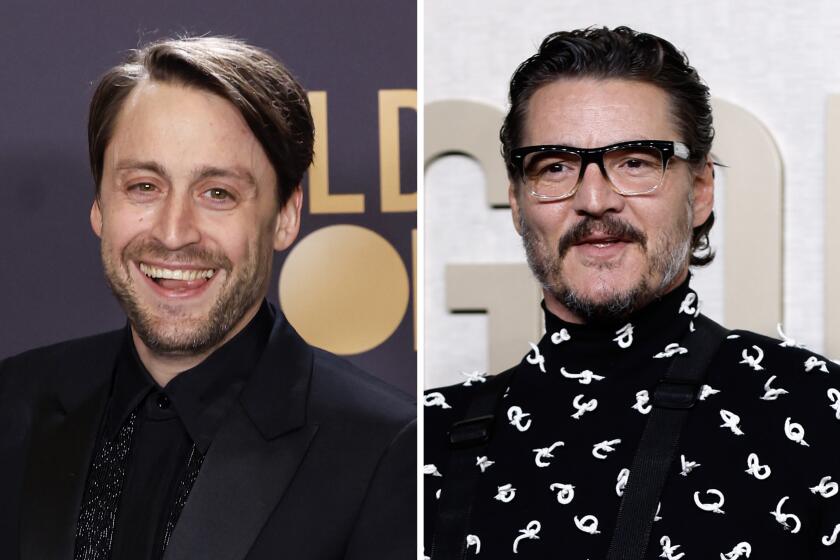Ethan Hawke goes bold in ‘Good Lord Bird,’ adding humor to an anti-slavery story
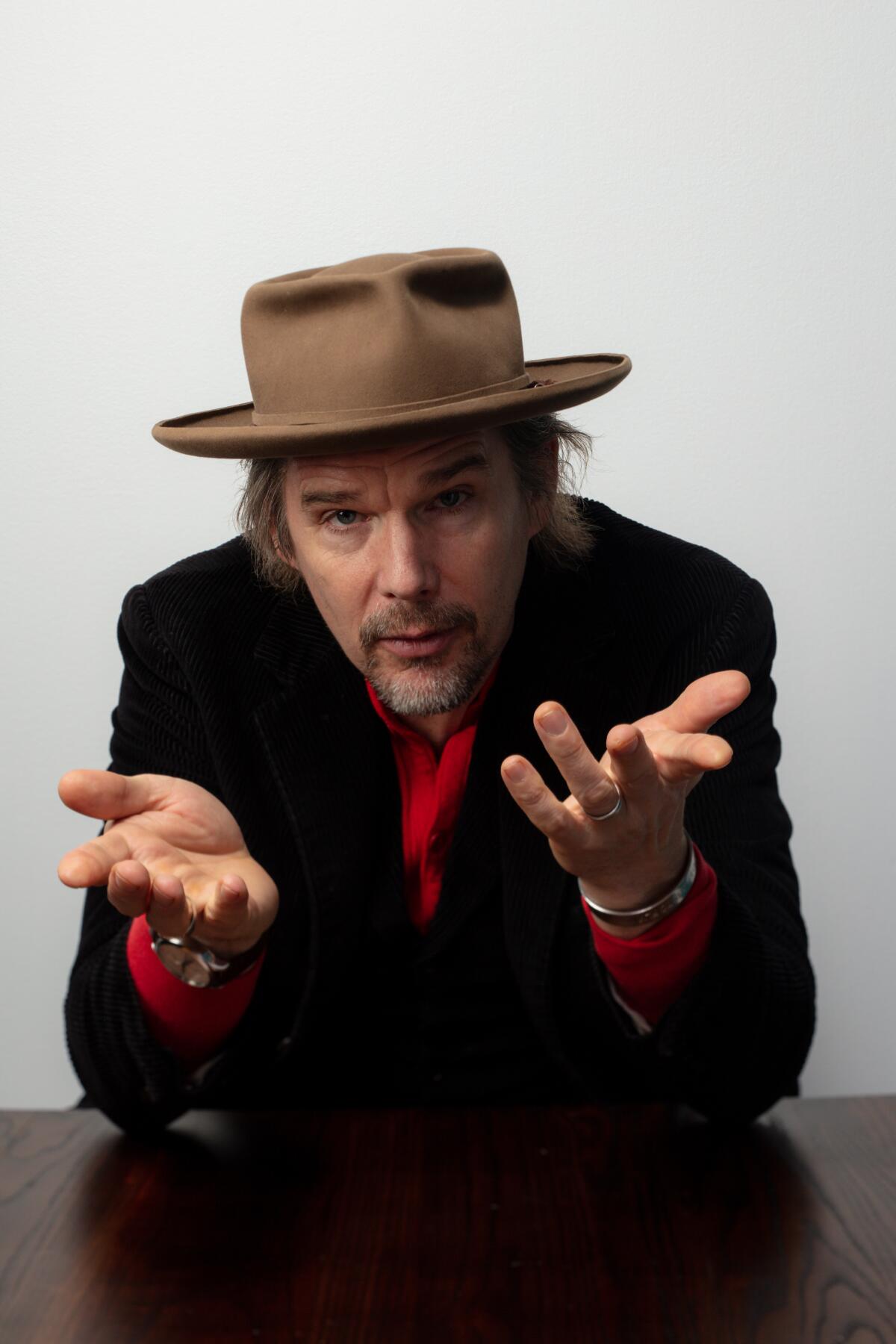
It wasn’t until a couple of days before Showtime’s “The Good Lord Bird” began shooting its first episode in Powhatan, Va., during an on-set table read that executive producer Jason Blum allowed himself a moment of cautious optimism. “It definitely felt like we were trying something bold and ambitious,” says Blum of the limited series that is based on the 2013 novel by James McBride about white abolitionist John Brown, who led the botched raid on the armory in Harpers Ferry in 1859 that helped hasten the Civil War.
As with McBride’s book, the tone of the seven-part historical drama shifts among being comedic, heartbreakingly tragic and sometimes just plain strange. Ethan Hawke plays Brown and even in the bleakest of scenes, the tireless opponent of slavery, can appear to be off his rocker, a spittle-spewing, mangy-bearded, often incoherent windbag. Meanwhile, the true narrator of the saga, a 14-year-old former slave named Henry Shackleford (Joshua Caleb Johnson), is himself a running sight gag throughout: Having misheard his name, Brown outfits him in a woman’s dress, a gender assignment that Little Onion — the nickname Brown bestows upon him — accepts, albeit without enthusiasm.
Even in its earliest stages, Blum remembers thinking, “’There’s one way for this to work and 99 ways for it not to. But, jeez, if it works, it’s going to be awesome,’” he says. “Even in June, when the whole thing was basically complete and we all loved it, we just didn’t know.”
As it happens, Blum didn’t get to read the glowing reviews until long after he thought he would. Having completed production before the pandemic, “The Good Lord Bird” was originally scheduled to premiere in February. It was then moved to early August. But Black Lives Matter protests continued to be staged, and George Floyd-inspired street art was showing up on walls around the world. Showtime then chose to move “The Good Lord Bird” to October.
For Hawke, the intervening months were nail-biters. Having received the “Good Lord Bird” rights from McBride for free in exchange for his promise that the miniseries would be faithful to the book, he worried that as 2020 continued to roil and heave, Showtime might decide that humor might not be the way to go when depicting racism in the antebellum South.
“The show is playful about a subject matter you’re not usually allowed to be playful about,” says Hawke, who notes his fears were unfounded. Moreover, the series turned out to feel as topical in the fall as it was in the summer. “Talking about race in America has been incredibly relevant every day for the last couple hundred years. We’re in a crisis point. I think the pandemic has put so much pressure on the country’s shoulders that the stitches are ripping open out of all the old wounds, and everything is being revealed.”
Hawke has tried his hand at everything — he’s acted in more than 65 films, both big budget and indie, directed four features, written novels and is directing a documentary about Paul Newman and Joanne Woodward. But he had scant experience when it came to the small screen. “It was the first thing he ever did in TV, and I don’t think he could have picked anything harder, more challenging,” says Blum, who has worked with Hawke since they were in their early 20s and Blum was the producing director of Malaparte, Hawke’s theater company.
As for the long 107 degree days dressed in wool era-appropriate costumes, toting 90-pound guns, Hawke describes them as “brutal.” But watching “Good Lord Bird,” you can feel how the miserable conditions added additional layers to his portrayal of a wild-eyed zealot.
“I kind of imagined the perfect actor for this part would be Robert Duvall. I loved the way he talked in ‘Apocalypse Now,’” says Hawke, who ended up channeling his gruff, straight-talking civil rights activist grandfather, Howard L. Green. “Sometimes you just find yourself in the pocket of the character. I enjoyed the hell out of it.”
Part of Hawke’s success in a new medium, says storied TV director, Kevin Hooks, who helmed two episodes of “Good Lord Bird,” was recognizing he had a safety net. “There were those of us who understood the process a lot better than he, and he was open to suggestions, advice and all of that,” says Hooks. “We could be honest with each other, he never minded if I went to him and said, ‘I think that’s a bit much,’ because a lot of times we were just exploring, where we didn’t know what was going to work in the moment.”
Hawke’s name appears all over the credits — as star, executive producer and cowriter (he cowrote the pilot and final episode and sat in on every story meeting). But Blum says he also had input in less tangible ways. “Ethan might not appreciate [hearing] this, but in a way, he’s kind of become a statesman. He’s a terrific actor, but he [has also become] a real leader and collaborator. He kind of led the charge of this show in what I thought was an amazing way. He really mentored Joshua in much the same way he mentored Ellar Coltrane [Hawke’s costar in Richard Linklater’s coming-of-age indie ‘Boyhood’ and who also appears in ‘The Good Lord Bird’].”
Hawke is back in the world of movies after landing a role in Robert Eggers’ Viking revenge drama, “The Northman.” But he now counts “The Good Lord Bird” as “one of the best experiences of my life. I was given a huge canvas and one of the most interesting characters I’ve ever been asked to play,” he says. “To get the opportunity to make meaningful, substantive art that speaks to your country’s issues and to the moment? That’s what I work for.”
More to Read
From the Oscars to the Emmys.
Get the Envelope newsletter for exclusive awards season coverage, behind-the-scenes stories from the Envelope podcast and columnist Glenn Whipp’s must-read analysis.
You may occasionally receive promotional content from the Los Angeles Times.
